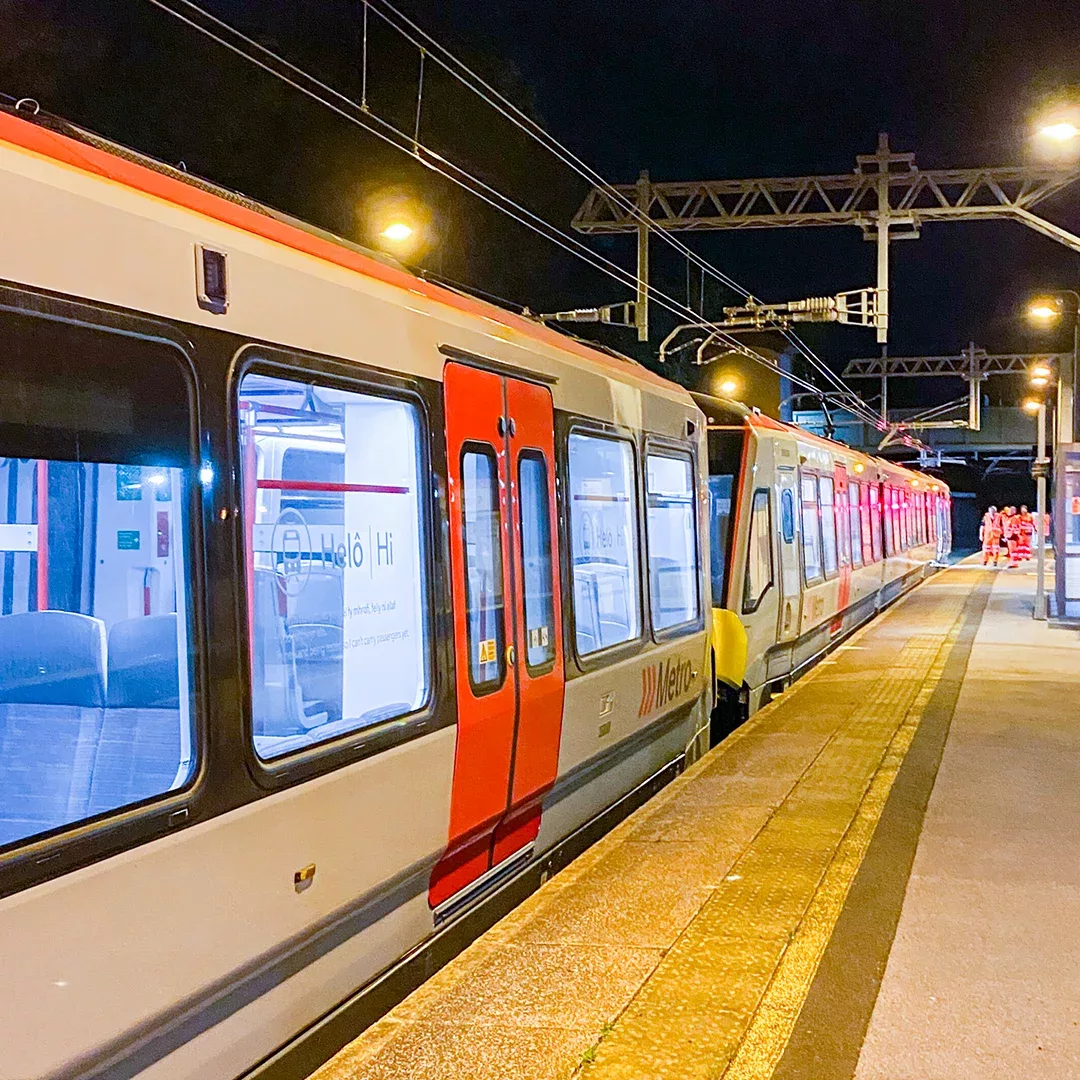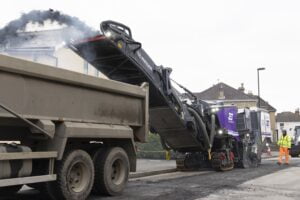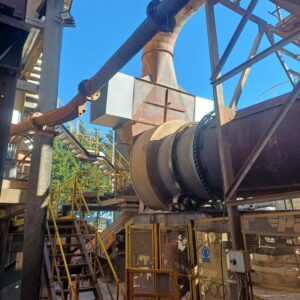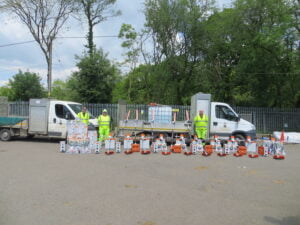A new grid connection is allowing trains in the South Wales Valleys to be electrified for the first time.
Transport for Wales (TfW) electrified a significant part of track on its historic Core Valleys Lines (CVL) after National Grid connected two new circuits at its Upper Boat substation near Pontypridd, enabling the rail operator to replace noisy and less environmentally friendly diesel trains with faster, greener, battery-electric hybrid solutions.
The connection forms a key part of the wider programme of rail improvements being undertaken by TfW, to upgrade 170km of track on the CVL to Aberdare, Coryton, Merthyr Tydfil, Rhymney and Treherbert.
The achievement marks a significant milestone in the Welsh Government’s wider plans to provide a South Wales Metro to better connect the communities of South Wales with an integrated network of bus, rail and active travel that make sustainable travel easier across the region.
The on-board battery storage capabilities of the innovative trains procured by TfW allow for sections of the route to be operated without overhead line equipment (OLE) above the train, avoiding the need for re-engineering complex areas – such as large town-centre stations, long tunnels, and low bridges – some of which have local historical value.
The resilience of the power supply remains paramount to the network’s operation as the trains’ batteries will need to be recharged when operating under the live OLE.
As National Grid’s standard trackside transformers were three times the capacity required for this project, its project team worked with TfW to engineer a bespoke solution for the connection – investing in the design, delivery, installation, and commissioning of two 275/25kV traction transformers to make the connection. The connection also required an extension to the existing National Grid Upper Boat 275kV substation.
The design, development and factory acceptance testing of the new transformers were largely carried out by teams working remotely due to the ongoing challenges of the COVID-19 pandemic, making the achievement even more remarkable.
Challenges securing bulk fleet transportation during the pandemic didn’t hold up the project – National Grid secured delivery of both transformers to Wales ahead of time.
The connection was delivered in collaboration with multiple contractors, including Morrison Energy Services and Jacobs on National Grid’s side, and with Amey and Balfour Beatty working on behalf of Transport for Wales.
The Deputy Minister for Climate Change with responsibility for Transport, Lee Waters said: “The Metro is one of the most complex engineering projects taking place anywhere and it’s great to finally see all the pieces coming together. By connecting into the grid we are now able to test our new electric trains and allow staff to learn how to operate them.”
Paul Taunton, Lead Project Manager at National Grid, said: “It’s a fantastic achievement from all involved to connect these new circuits at Upper Boat and help Transport for Wales progress its transformation of the Core Valleys Lines into cleaner, greener rail services.
“When the National Grid team mobilised at Upper Boat in January 2021, the work involved to design, construct, and coordinate at all levels with many different stakeholders seemed a daunting task, with a project that held such significance for our friends and close colleagues within the Transport for Wales community.
“Given the wider Welsh Government plans to provide a South Wales Metro, our achievement today has provided a significant contribution to the direction of those very important Welsh Government plans.
“The success of this team effort cannot be underestimated, since it has involved the dedication, commitment, and professionalism of all teams from the Transport for Wales and National Grid communities all working together as one.”
Dan Tipper, Chief Infrastructure Officer at TfW, commented: “The energisation of the first section of the Core Valley Lines is a key milestone in the progression of the South Wales Metro scheme and a historic moment for the rail industry in Wales.
“Securing the transformers needed for the project and delivering them to South Wales was a global operation requiring a huge amount of logistical planning.
“It has taken a lot of work and collaboration between a number of organisations and we would like to thank the National Grid for their work on this project.”





















